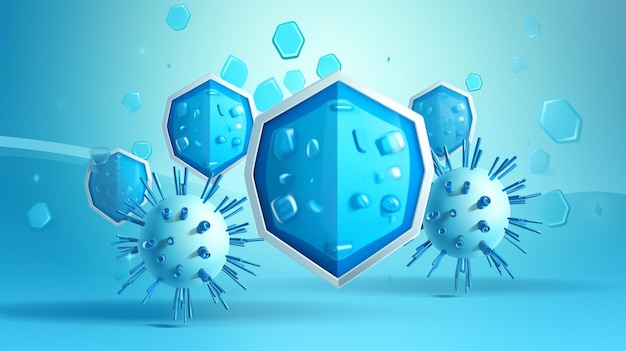
Overview
When Thomas B., a technical director from Sherwood, Arkansas, started exploring the benefits of the essential mineral zinc, he was astonished. “I started reading about zinc and knew I had to start using it,” he says. “I remember thinking: How could I be missing something this important?”
Thomas takes zinc as soon as he suspects he might be coming down with a cough or cold. The key is to take zinc within 24 hours of developing symptoms because that’s when it’s most effective.
“Zinc is my go-to whenever I’m coming down with something,” says Erin F., a writer from Flemington, New Jersey. “As soon as I feel that familiar post-nasal drip in the back of my throat, the one that warns of a cough or oncoming cold, I reach for it.”
Keep reading to find out about the crucial role zinc should have in your supplement regimen.
What Is Zinc?
Zinc is an essential trace element that your body requires for various cellular processes, such as cell division, protein and DNA synthesis, wound healing, and enzyme activation.
Your body uses zinc to support healthy and clear skin, brain and eye health, and the immune system. It also plays a role in testosterone production and male sexual health.
Your body can’t store zinc, so you need to get enough daily. According to the United States Office of Dietary Supplements, the recommended dietary allowance (RDA) for most adult men and women is 8 mg. When pregnant, the daily requirement increases to 12 mg.
How Does Zinc Deficiency Affect the Immune System?
If you are low in zinc, it affects your immune function by increasing your risk of getting an infection. This mineral affects your body’s ability to make immune cells and produce antibodies that are necessary for the immune response.
Without enough zinc, your body can’t make and activate immune system cells like T-lymphocytes — white blood cells that shut down infected cells.
You’ll find zinc in every cell of your body. It’s involved in over 300 enzymes and 1,000 transcription factors — proteins that help in cell division by copying DNA. You can’t be in full health if you don’t get enough of this mineral.
Why Zinc Is a Great Immune System Booster
From a runny nose that won’t stop to a scratchy throat, getting sick makes it hard to focus on anything else.
When you feel poorly, it can force you to miss school, work, or other activities. The good news is that zinc may help you kick the sniffles and aches to the curb — before they begin.
Below are the top ways that zinc boosts the immune system.
Helps With Common Cold Symptoms
When people think about dealing with a sickness, they focus on cold remedies or different ways of managing the symptoms. But a robust immune system can help prevent you from getting sick in the first place. We know that taking zinc when you first notice the sniffles or a cough can lower the severity and duration of your symptoms for both adults and kids. Research suggests that upping your zinc intake within 24 hours of when you feel something coming on makes it most effective.
Many parents are seeing the benefits of giving zinc to their kids. “I started giving my 12-year-old daughter, Natalie, zinc after one snowy winter when everyone around us was getting sick,” says Mary M., a nursing student from Chicago, Illinois. “I added zinc to her daily vitamins, and she’s been feeling great.”
Has Great Antioxidant Properties
Zinc has strong antioxidant properties that help your body deal with free radicals such as reactive oxygen species (ROS), unstable molecules that damage cells and tissues. Antioxidants — from vitamin A to zinc — counteract the oxidative stress from these free radicals. Oxidative stress over time can lead to chronic disease.
Zinc works as well as other potent antioxidants, like vitamin C. When 3,640 adults with macular degeneration (a type of eye disease) were split up into groups, the ones who took zinc showed the same improvement in vision as those who took other antioxidants (vitamin C, vitamin E, and beta-carotene).
Promotes Natural Wound Healing
When you get a cut or a scrape, you probably reach for a bandage. But you might also grab some zinc. This trace mineral plays a part in many wound-healing processes, including repairing membranes, coagulating blood, fixing tissues, and forming scars — not to mention your body’s immune defense response.
Topical zinc applied as a paste to the skin is particularly effective for wound healing.
Thomas uses zinc when he gets a cut on his hand. “I’ve used zinc for wounds before. I feel like it really helps,” says Thomas. “I believe it makes my whole body function better and heal faster.”



